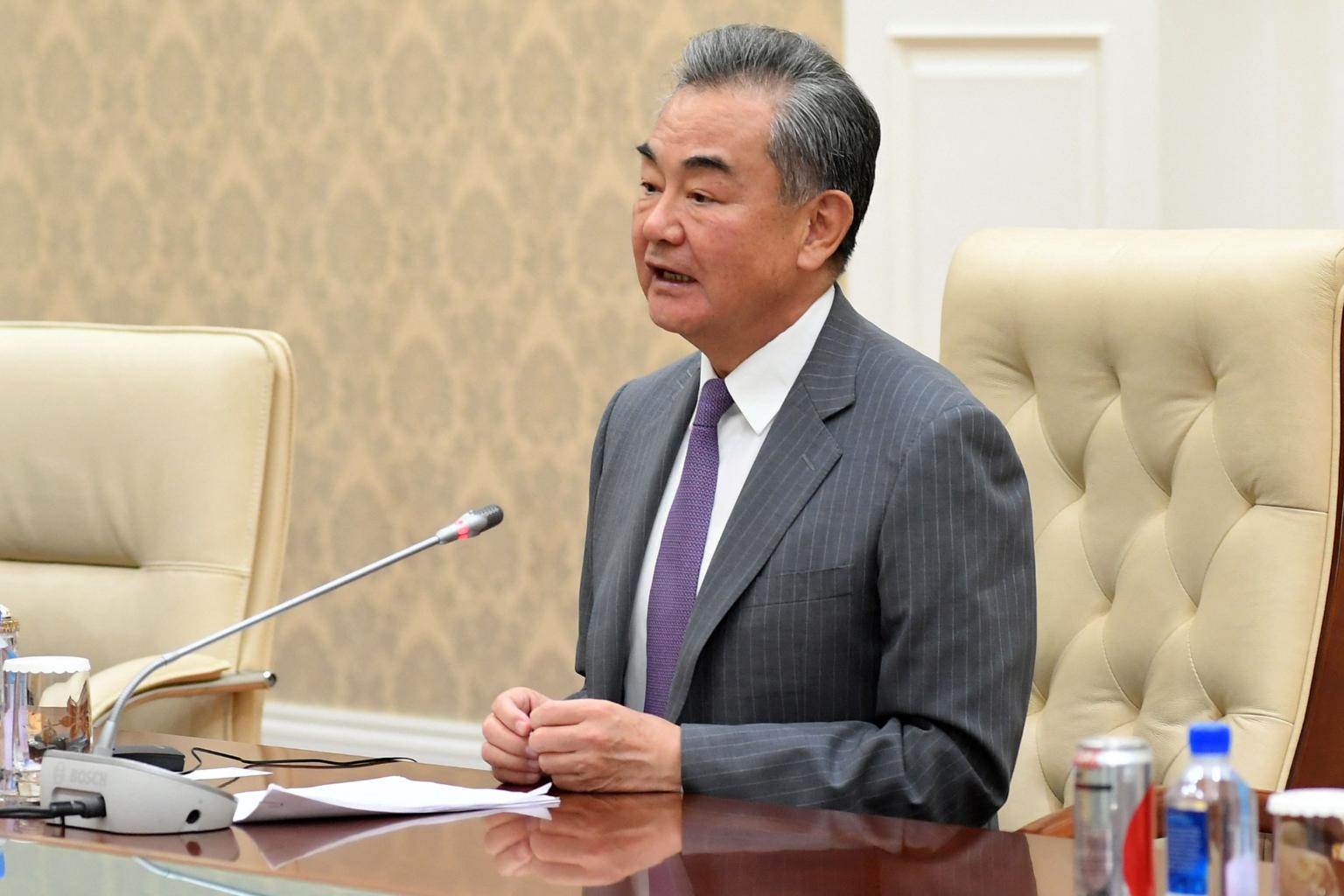China to waive some Africa loans, offer $14 billion in IMF funds
Sign up now: Get ST's newsletters delivered to your inbox

Chinese Foreign Minister Wang Yi announced the cancellations in a meeting of the Forum on China-Africa Cooperation.
PHOTO: AFP
Follow topic:
BEIJING (BLOOMBERG) - China, the largest government creditor to emerging economies, said it will forgive 23 interest-free loans to 17 African countries and redirect US$10 billion (S$14 billion) of its International Monetary Fund reserves to nations on the continent.
Foreign Minister Wang Yi announced the cancellations in a meeting last week of the Forum on China-Africa Cooperation, according to a post on the ministry's website.
It did not provide details on the value of the loans which it said matured at the end of last year, nor did it state which nations owed the money.
Since 2000, Beijing has announced multiple rounds of debt forgiveness of interest-free loans to African countries, cancelling at least US$3.4 billion of debt through 2019, according to a study published by Johns Hopkins University School of Advanced International Studies.
The cancelled debt was limited to mature, interest-free foreign aid loans, with Zambia receiving the most cancellations over that period.
However, the vast majority of China's recent lending in Africa such as concessional loans and commercial loans have never been considered for cancellation, the report added, though some of it has been restructured.
Surging inflation has triggered a wave of interest-rate increases by central banks worldwide, including the US Federal Reserve, which drives up the costs of sovereign loan repayments.
Meanwhile, developing nations have amassed a quarter-trillion dollar pile of distressed debt that threatens to create a historic cascade of defaults by economies that were struggling even before the Covid-19 pandemic.
Beijing, which has come under criticism for its lending practices to poorer nations, accounts for almost 40 per cent of the bilateral and private-creditor debt that the world's poorest countries need to service this year, according to the World Bank.
It has helped forge recent debt-relief agreements, participating in the Group of 20 suspension of repayments during the pandemic.
The announcement last week highlights China's efforts to build ties with developing nations, particularly through its Belt and Road Initiative.
The United States and China are competing for influence around the world, and Beijing's announcement comes at a low point in ties between the two superpowers, with tensions rising following a visit to Taiwan by US House Speaker Nancy Pelosi earlier this month as well as Beijing's support of Russia amid its invasion of Ukraine.
"What Africa wishes for is a favourable and amicable cooperation environment, not the zero-sum Cold War mentality," Mr Wang said, according to the post.
The IMF's record US$650 billion resource injection last year was intended to help its members weather the effects of the Covid-19 outbreak, but fund chief Kristalina Georgieva has urged richer nations to do more by lending their reserves to poorer ones.
China received the equivalent of about US$38.2 billion through the IMF's recent injection of special drawing rights, which work like an overdraft and come with no conditions.
Mr Wang said that China is willing to channel US$10 billion worth of China's special drawing rights through two of the fund's trusts set up to help poor and middle-income nations.
Since the Forum on China-Africa Cooperation took place in Senegal in November last year, Beijing has delivered US$3 billion of US$10 billion of credit facilities pledged to African financial institutions, Mr Wang said in the speech.
In addition, China this year has agreed to tariff-free entry to 98 per cent of exports from 12 African countries and has provided emergency food assistance to Djibouti, Ethiopia, Somalia and Eritrea, Mr Wang said.

